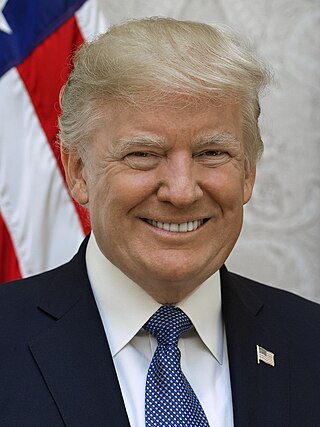Seçim boykotu
| seri |
| Oylama |
|---|

Seçim boykotu, oy kullanmaktan kaçınan bir grup seçmen tarafından bir seçimin boykot edilmesidir.
Seçim hilesinin muhtemel olduğunu hisseden seçmenler veya seçim sisteminin adaylarına karşı ön yargılı olduğunu düşünenler, seçim düzenleyen iradenin meşruiyetinin eksik olduğunu düşünenler veya adaylarının çok popüler olmadığını düşünenler için bir protesto biçimi olarak boykot kullanılabilir. Zorunlu oy kullanma sisteminin olduğu bölgelerde, boykot bir sivil itaatsizlik eylemi olarak değerlendirilebilir. Alternatif olarak, boykot destekçileri boş oy kullanabilir veya "hiçbiri" seçeneğini tercih edebilir. Boykot eden seçmenler genellikle belirli bir bölgesel veya etnik gruba ait olabilir. Belirli bir siyasi parti veya aday, seçimlere katılmayı reddedebilir ve destekçilerini oy kullanmamaya teşvik edebilir.
Bir referandum durumunda, boykot, teklifin karşıtları tarafından bir oy kullanma taktiği olarak kullanılabilir. Eğer referandumun geçerli olması için bir asgari katılım gerekiyorsa, boykot bu kota ulaşılmasını engelleyebilir.
Genel seçimlerde, bireyler ve partiler genellikle hükûmetin politikalarını protesto etmek amacıyla boykot yaparlar ve umutları, seçmenler ortaya çıkmadığında seçimlerin dış gözlemciler tarafından meşru olmamasıdır. Ancak bu taktik, boykot yapan partiler için felaketle sonuçlanabilir. Katılım eksikliği nadiren seçim sonuçlarını iptal eder ve bozulmuş oylama, boykot yapan grupları daha da iktidar organlarından uzaklaştırabilir, onları politik olarak önemsiz hale getirebilir.[1]
Seçim boykotlarının başlıca örnekleri
| Seçim | Oran (%) | Notlar |
|---|---|---|
| 1971 Trinidad and Tobago general election | 33.2 | |
| 1973 Northern Ireland sovereignty referendum | 58.1 | Less than 1% amongst Catholics |
| 1978 Guyanese constitutional referendum | 70.8 | Opposition estimates were between 10% and 14% |
| 1978 South West African legislative election | 80.2 | |
| 1983 Jamaican general election | 2.7 | 6 of 60 seats contested, with 55% turnout in them. |
| 1984 South African general election | 29.9 and 20.8 | |
| 1989 South African general election | 18.1 and 23.3 | |
| 1991 Burkinabé presidential election | 27.3 | |
| 1992 Ghanaian parliamentary election | 28.1 | |
| 1993 Togolese presidential election | 36.2 | |
| February 1996 Bangladeshi general election | 21.0 | |
| 1997 Malian presidential election | 29.0 | |
| 1997 Yemeni parliamentary election | 61.0 | Turnout (1993): 84.8% |
| 1997 Slovak referendum | 9.5 | |
| 1997 Serbian general election | 57.4 | The elections were boycotted by several parties, including the Democratic Party, the Democratic Party of Serbia and the Civic Alliance, which claimed that the elections would not be held under fair conditions |
| 1999 Algerian presidential election | 60 | Boycotting candidates claimed that it was only around 25% |
| 2000 Ivorian presidential election | 37.4 | |
| 2000 Yugoslavian general election | 28.8[a] | Boycotting by the ruling coalition of Montenegro, led by DPS |
| 2002 Gambian parliamentary election | 56.4 | Voting only took place in 15 of the 48 seats |
| 2002 Montenegrin presidential election | 45.9 | Election invalid[] |
| 2003 Azerbaijani presidential election | 62.85 | |
| February 2003 Montenegrin presidential election | 46.6 | Election invalid[] |
| May 2003 Montenegrin presidential election | 48.4 | |
| 2003 Guinean presidential election | 86 | Opposition estimates were less than 15% |
| 2005 Venezuelan parliamentary election | 25.3 | |
| 2006 Thai general election | 65.2 | Boycotted by all 3 opposition parties in the House of Representatives. |
| 2008 Djiboutian parliamentary election | 72.6 | |
| 2012 Gambian parliamentary election | 38.7 | |
| 2014 Thai general election | 65.2 | Boycotting by Democrat Party. |
| 2014 Bangladeshi general election | 22.0 | |
| 2016 Hungarian migrant quota referendum | 44.0 | Referendum boycotted by MSZP, DK, Együtt, Párbeszéd, Modern Hungary Movement and The Homeland Not For Sale Movement Party, resulting in 98% of voters supporting the government. 224 thousand voters submitted invalid ballots, influenced by a campaign by the Hungarian Two-tailed Dog Party. |
| 2017 Puerto Rican status referendum | 23 | Statehood, polled at 52% just 2 weeks prior, chosen by 97% of voters |
| 2017 Venezuelan Constituent Assembly election | 41.5 | Opposition estimates were around 20% |
| 2017 Catalan independence referendum | 43.03 | Opposition parties called on their voters to boycott the vote, except Catalunya Sí que es Pot who supported participation.[2] |
| October 2017 Kenyan presidential election | 39.03 | After the Supreme Court nullified the original election and ordered a new one to be held within 60 days, opposition candidate Raila Odinga withdrew from the rerun, claiming the electoral commission had failed to institute reforms.[3] |
| 2018 Egyptian presidential election | 41.1 | |
| 2018 Russian presidential election | 67.5 | Russian opposition leader Alexei Navalny called for an election boycott, however an about 67.5% voter turnout was estimated.[4][5][6][7] |
| 2018 Venezuelan presidential election | 46.1 | Opposition estimates were between 17% and 26% |
| 2018 Macedonian referendum | 36.9 | |
| 2019 Albanian local elections | 23.0 | Opposition estimates were 15.1% |
| 2019 Algerian presidential election | 39.9 | |
| 2020 Artsakhian general election | 45.0 | |
| 2020 Serbian parliamentary election | 48.9 | |
| 2020 Ivorian presidential election | 53.9 | |
| 2020 Venezuelan parliamentary election | 30.5 | |
| 2020 Iranian legislative election | 42 | Conservatives:76.20%, Reformists: 6.89% |
| 2021 Djiboutian presidential election | 76.44 | |
| 2021 Hong Kong legislative election | 30.2 | Pro-democrats boycotted the election as many in the camp believed the space for them to participate in the overhauled political landscape under the Hong Kong national security law had been extinguished. |
| 2022 Tunisian constitutional referendum | 30.5 | Many major parties boycotted the election after the 2021–2022 Tunisian political crisis. |
| 2022–23 Tunisian parliamentary election | 11.2 and 11.4 | Almost every major party boycotted the election |
| 2023 Kosovan local elections | 3.5 | Of the approximately 40,000 Serbs of North Kosovo, only 13 Serbs voted in the elections. All Serbian parties boycotted the elections. See 2022–2023 North Kosovo crisis. |
Boykot kampanyaları
1868'den 20. yüzyıla kadar, Papa'lar İtalyan Katoliklerinin İtalyan parlamento seçimlerine hem aday olarak hem de seçmen olarak katılmasının "uygun olmadığını" ilan ettiler.
Güney Afrika'da, en büyük üç bağımsız sosyal hareket, No Land! No House! No Vote! Kampanyası çerçevesinde oylamayı boykot etmektedir.
Dünya genelinde diğer bölgelerdeki bazı sosyal hareketler de benzer kampanyalara veya oy vermeme tercihine sahiptir. Bunlar arasında Hindistan'daki Naksalitler, Meksika'daki Zapatista Ulusal Kurtuluş Ordusu ve çeşitli anarşist odaklı hareketler bulunur. Meksika'nın 2009 yarı dönem seçimlerinde 'Nulo'ya güçlü bir destek vardı - hiçbir adaya oy vermeme kampanyası. Hindistan'da ise Singur, Nandigram ve Lalgarh'daki yoksul halk hareketleri, parlamento politikalarını (aynı zamanda STK ve Maoist alternatiflerini de) reddetmiştir.[8][9][10][11]
Sonuçları
1981-2006 döneminde hibrit rejimleri inceleyen siyaset bilimci Ian O. Smith, muhalefetin seçim boykotunun iktidardaki parti için gelecekteki seçimleri kaybetme olasılığını artırabileceği sonucuna vardı.[12] Gregory Weeks, Latin Amerika'daki bazı otoriter rejimlerin muhalefetin boykotu nedeniyle uzatıldığını belirtmiştir.[13] Gail Buttorff ve Douglas Dion ise otoriter rejim altında muhalefetin boykotunun farklı sonuçlara yol açtığını, bazen rejim değişikliğini öngördüğünü, bazen de mevcut hükûmeti güçlendirdiğini açıklamaktadır.[14]
Notlar
- ^ Montenegro'da
Kaynakça
- ^ Frankel, Matthew. "Election Boycotts Don't Work" 13 Haziran 2010 tarihinde Wayback Machine sitesinde arşivlendi., Brookings Institution, 3 November 2009.
- ^ "Les bases de Podem Catalunya donen suport al referèndum de l'1 d'octubre però no el veuen vinculant". VilaWeb.cat (Katalanca). 14 Haziran 2017 tarihinde kaynağından arşivlendi. Erişim tarihi: 25 Eylül 2017.
- ^ "Kenya: Raila Odinga withdraws from election rerun". the Guardian (İngilizce). 10 Ekim 2017. 10 Ekim 2017 tarihinde kaynağından arşivlendi. Erişim tarihi: 25 Ekim 2021.
- ^ "Analysis | Why turnout will be the detail to watch in Russia's election". Washington Post (İngilizce). ISSN 0190-8286. 27 Nisan 2019 tarihinde kaynağından arşivlendi. Erişim tarihi: 20 Mayıs 2021.
- ^ "Russian opposition takes to streets, calls for election boycott". CNBC (İngilizce). 28 Ocak 2018. 28 Ocak 2018 tarihinde kaynağından arşivlendi. Erişim tarihi: 20 Mayıs 2021.
- ^ "Navalny calls for boycott of Russian election | Reuters.com". www.reuters.com. 29 Ocak 2018 tarihinde kaynağından arşivlendi. Erişim tarihi: 20 Mayıs 2021.
- ^ "Russia's rebel mayor calls for presidential election boycott". AP NEWS. 30 Nisan 2021. 20 Mayıs 2021 tarihinde kaynağından arşivlendi. Erişim tarihi: 20 Mayıs 2021.
- ^ Marc Lacey (21 Haziran 2009). "Disgruntled Mexicans Plan an Election Message to Politicians: We Prefer Nobody". The New York Times. s. A8. 13 Haziran 2023 tarihinde kaynağından arşivlendi. Erişim tarihi: 13 Haziran 2023.
- ^ "Vota en Blanco". 23 Haziran 2009 tarihinde kaynağından arşivlendi. Erişim tarihi: 22 Haziran 2009.
- ^ Nancy Davies (21 Haziran 2009). "Representative Democracy versus Participatory Democracy". The Narco News Bulletin. 15 Mart 2018 tarihinde kaynağından arşivlendi. Erişim tarihi: 13 Haziran 2023.
- ^ Avijit Ghosh (21 Haziran 2009). "No revolution for old radicals". The Times of India. 18 Mart 2011 tarihinde kaynağından arşivlendi.
- ^ Smith, Ian O. (2013). "Election Boycotts and Hybrid Regime Survival". Comparative Political Studies. 47 (5): 743-765. doi:10.1177/0010414013488548.
- ^ Weeks, Gregory (1 Mart 2013). "A cautionary tale for election boycotts". Foreign Policy. 13 Haziran 2023 tarihinde kaynağından arşivlendi. Erişim tarihi: 13 Haziran 2023.
- ^ Buttorff, Gail; Dion, Douglas (2016). "Participation and boycott in authoritarian elections". Journal of Theoretical Politics. 29 (1): 97-123. doi:10.1177/0951629816630431.














